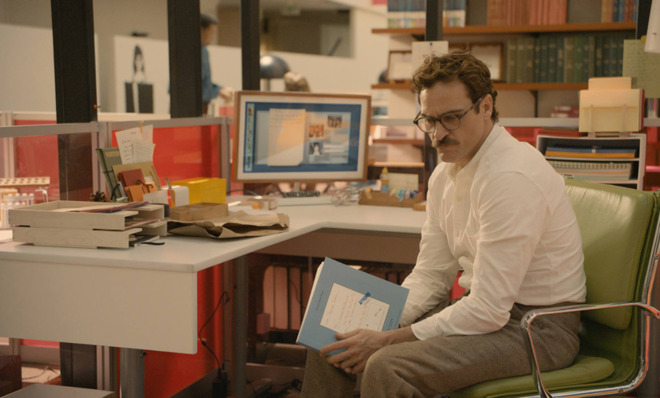Why your iPhone wants to be your best friend
Technology is increasingly designed to make you forget it's not human

A free daily email with the biggest news stories of the day – and the best features from TheWeek.com
You are now subscribed
Your newsletter sign-up was successful

Humans seek companionship. When no one else is around, we look elsewhere for it. I don't think I'm alone in turning on the television or checking Twitter at every opportune moment to "check in" on other people. On weekends or late nights in the office, I often fire up our drone and have it hover around the room. It makes me feel like someone else is there. Perhaps it would have been more practical for us to get a Roomba.
The point is, for as long as we've had technology, people have sought companionship from it. What's new is that consumer electronics companies are now designing their products to mimic human voices and even biological functions: From voice-activated phones to washing machines that coo in disturbing simpatico with human beings — not to mention the trend in car manufacture toward more explicitly face-like front ends.
You may know that Nokia chose its famous SMS tone because it shares a frequency with that of a crying infant. That's a sound most of the population is already keenly tuned in to. In other words, a mobile phone manufacturer tapped into maternal terror to ramp up the attention-seeking quotient of its handheld devices.
The Week
Escape your echo chamber. Get the facts behind the news, plus analysis from multiple perspectives.

Sign up for The Week's Free Newsletters
From our morning news briefing to a weekly Good News Newsletter, get the best of The Week delivered directly to your inbox.
From our morning news briefing to a weekly Good News Newsletter, get the best of The Week delivered directly to your inbox.
Apple's "personal assistant" Siri is one of the best-known examples of anthropomorphism in technology. Apple knows this, which is why the company is so smart and a little smug about it. Try asking Siri to "open the pod bay doors" and she will respond in a slow and monotonous tone, a stark change from her usual robotic accent.
While Siri lacks HAL's capabilities for art appreciation, chess-playing, and holding a conversation, people fell in love with her. You can't have a conversation with Siri, and you have to tap a button on the screen before issuing any command, so it's more akin to having to beat someone with a stick to get them to reply. But still.
Of course, Siri isn't a new concept. ELIZA, written by MIT professor Joseph Weizenbaum in the sixties was a "digital psychiatrist." The worst kind of psychiatrist, too: ELIZA would ask never-ending questions based on the last thing you said to her. It's a mundane program by today's standards and not in any way useful, but for its time was absolutely amazing.
Weizenbaum was shocked by the reaction to ELIZA from people who didn't understand it. His secretary would spend hours telling this program about her problems. She was, however, incredibly upset when Weizenbaum showed her the conversation logs he had kept. Which is perhaps something we can all empathize with.
A free daily email with the biggest news stories of the day – and the best features from TheWeek.com
Sometimes the companionship we seek can be purely physical. I have no doubt many of our readers have fallen asleep to the soft "breathing" glow (not chosen by accident) of iBooks, iMacs, PowerBooks, and MacBooks over the years. It can be strangely reassuring to glance over at your machine and know it's asleep. Alas, Apple have phased this out in their latest generation of computers as new technology allows them to be always on.
But there's a trend here, and its toward technology as companion. It's as if consumer electronics companies are giving up the pretense that technology is connecting people and are instead designing it so that we don't miss them at all. Bit sinister, really. Don't you think?
More from The Kernel...
-
 Quiz of The Week: 14 – 20 February
Quiz of The Week: 14 – 20 FebruaryQuiz Have you been paying attention to The Week’s news?
-
 The Week Unwrapped: Do the Freemasons have too much sway in the police force?
The Week Unwrapped: Do the Freemasons have too much sway in the police force?Podcast Plus, what does the growing popularity of prediction markets mean for the future? And why are UK film and TV workers struggling?
-
 Properties of the week: pretty thatched cottages
Properties of the week: pretty thatched cottagesThe Week Recommends Featuring homes in West Sussex, Dorset and Suffolk